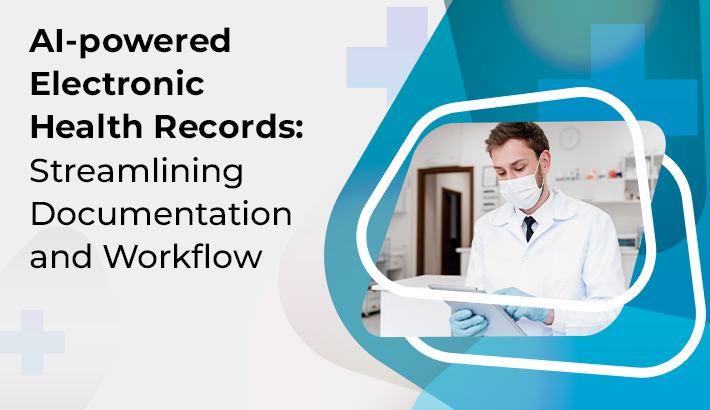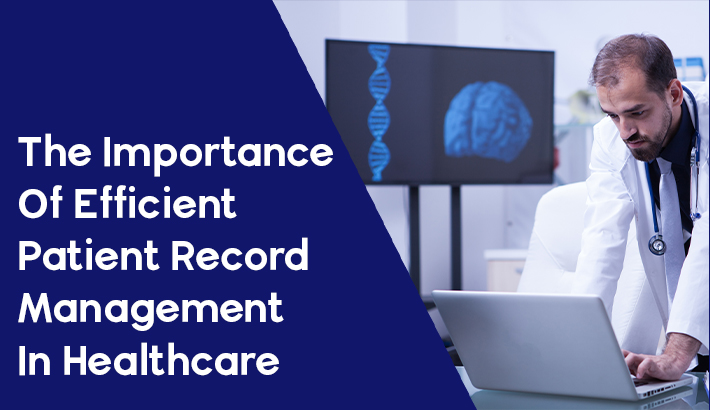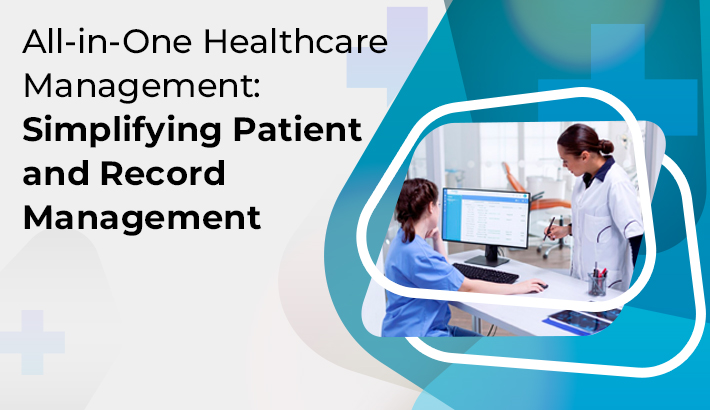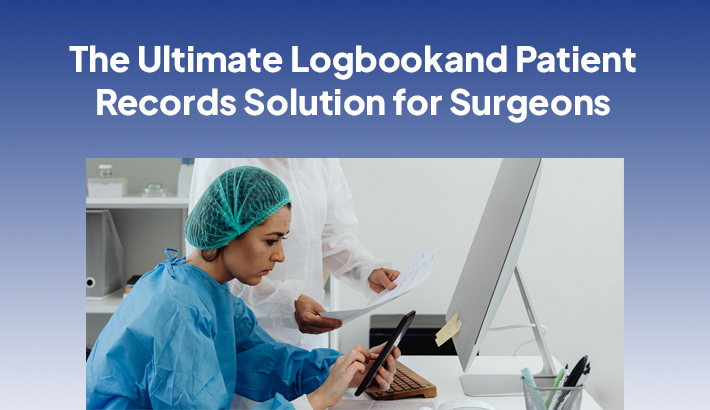Introduction
Electronic Health Records (EHR) are digital versions of a patient's medical history, including their diagnoses, medications, treatments, lab results, and other important health information. EHRs aim to improve the efficiency and quality of healthcare by enabling the secure and seamless exchange of patient data between healthcare providers. Electronic Health Records (EHR) are digital versions of a patient's medical history, including their diagnoses, medications, treatments, lab results, and other important health information.
Importance of Streamlining EHR Documentation and Workflow
Efficient documentation and workflow processes are crucial in healthcare to ensure accurate and timely patient care. Streamlining EHR documentation and workflow using artificial intelligence (AI) can help healthcare professionals save time, reduce errors, and improve patient outcomes. In this article, we will explore the challenges with traditional EHR systems and the potential benefits and applications of AI-powered solutions. specifically focusing on the integration of logbook apps within EHR systems. The integration of logbook apps can further enhance the documentation and workflow processes, offering healthcare professionals a more streamlined and efficient way to record and track patient information. We will discuss the benefits of integrating logbook app , potential use cases, and address privacy and security concerns associated with this technology.
Challenges with Traditional EHR Systems
Traditional EHR systems have faced several challenges that have hindered their efficiency and effectiveness.
1. Time-consuming data entry process: One of the major challenges with traditional EHR systems is the time-consuming nature of data entry. Healthcare professionals often spend a significant amount of time manually inputting patient information, which can be a burden on their efficiency and productivity.
2.Lack of interoperability: Traditional EHR systems often lack interoperability, meaning they cannot easily exchange patient data with other systems or healthcare providers. This results in fragmented patient information and can hinder coordinated care and continuity across different healthcare settings.
3. Potential for errors and inaccuracies: Human error is a common risk with manual documentation, leading to potential inaccuracies in the recorded patient information. This can have serious implications for patient safety, diagnosis, and treatment decisions.
Overall, these challenges highlight the need for innovative solutions, such as AI-powered EHR systems, to streamline documentation processes, improve interoperability, reduce errors, and enhance efficiency in healthcare delivery.
AI-powered Solutions for EHR Documentation
1. Natural Language Processing (NLP) for voice-to-text transcription
NLP technology can convert spoken language into written text, offering a more efficient way for healthcare professionals to input patient information. By allowing voice-to-text transcription, NLP can significantly speed up the data entry process while reducing the risk of errors.
2. Machine learning algorithms for automated coding and data extraction
Machine learning algorithms can analyze large volumes of patient data and automatically extract relevant information. This can streamline coding processes, improve accuracy, and reduce the manual effort required for documentation.
3. AI-based templates for standardized and efficient note-taking
AI-powered templates can assist healthcare professionals in documenting patient encounters by providing predefined sections and prompts for information gathering. This ensures consistent and comprehensive documentation, saving time and improving the quality of patient records.
Benefits of AI-powered EHR Documentation
AI-powered EHR documentation offers numerous benefits for healthcare professionals and patients. Firstly, it saves time and reduces the administrative burden on healthcare professionals. AI-based templates enable standardized and efficient note-taking, eliminating the need to manually enter repetitive information. This allows for more time to be spent directly interacting with patients.
Additionally, AI-powered EHR systems enhance patient care and communication. They can automatically generate personalized patient summaries and educational materials, improving patient understanding and engagement in their own healthcare.
AI-driven workflow automation further optimizes efficiency in healthcare settings. It can provide automated reminders and alerts for missed tasks or follow-ups, ensuring that important actions are not overlooked. Additionally, it streamlines referral and consultation processes, enabling faster and smoother collaboration between healthcare providers.
Addressing privacy and security concerns, AI-powered EHR systems implement robust access control and user authentication measures. They also enable ongoing monitoring and auditing of system activity to ensure compliance with privacy regulations.
Overall, AI-powered EHR documentation offers significant time and cost savings, improves patient care and communication, enhances workflow efficiency, and addresses privacy and security concerns, making it an invaluable tool in the healthcare industry.
AI-driven Workflow Automation
Intelligent scheduling and appointment management
AI-powered EHR systems can optimize appointment scheduling based on the availability of healthcare professionals, clinic resources, and patient preferences. Intelligent scheduling algorithms can minimize wait times and optimize resource utilization, leading to smoother clinic operations.
Automated reminders and alerts for missed tasks or follow-ups
AI can automate the process of sending reminders and alerts to healthcare professionals for any pending tasks or missed appointments. This helps ensure that necessary follow-ups are not missed, promoting continuity of care and patient safety.
Streamlined referral and consultation processes
AI-powered EHR systems can facilitate seamless referral and consultation processes by automatically identifying and suggesting relevant specialists or consultants. This improves the efficiency of care coordination and reduces delays in accessing specialized care.
Addressing Privacy and Security Concerns
1. HIPAA compliance and data encryption
AI-powered EHR systems must adhere to strict privacy and security regulations, such as the Health Insurance Portability and Accountability Act (HIPAA) in the United States. Implementing strong encryption measures and strict access controls ensures the privacy and confidentiality of patient information.
2. Access control and user authentication measures
To prevent unauthorized access to patient data, AI-powered EHR systems should employ robust access control and user authentication measures. This includes multi-factor authentication, role-based access controls, and audit trails to track system activity.
3. Ongoing monitoring and auditing of system activity
Regular monitoring and auditing of AI-powered EHR systems are essential to identify any potential security breaches or unauthorized access. Continuous evaluation of system activity helps healthcare organizations ensure the integrity and security of patient data.
Successful Implementation and Adoption of AI-powered EHR Systems
1. Executive buy-in and support
The successful implementation and adoption of AI-powered EHR systems require buy-in and support from healthcare organization executives. Clear communication of the benefits and potential challenges, as well as the allocation of appropriate resources, are essential for successful deployment.
2. Effective training and education for healthcare professionals
Providing comprehensive training and education for healthcare professionals is crucial to ensure their confidence and competence in using AI-powered EHR systems. This includes both initial training during system implementation and ongoing education to keep up with system updates and enhancements.
3. User feedback and continuous improvement
Gathering feedback and suggestions from healthcare professionals who use AI-powered EHR systems is vital for continuous improvement. Incorporating user feedback, addressing concerns, and making system adjustments based on real-world experiences can enhance system usability and functionality.
Case Studies of AI-powered EHR Systems
Case study 1: AI-powered voice recognition transcription in a hospital setting
This case study highlights the successful implementation of AI-powered voice recognition software in a hospital. The system improved physician efficiency, reduced transcription costs, and enhanced the accuracy of patient records.
Case study 2: Clinic's experience with AI-driven workflow automation
This case study focuses on a clinic that implemented an AI-powered EHR system to automate various workflow tasks. The clinic experienced improved appointment scheduling, reduced missed follow-ups, and enhanced communication among care team members.
Future Possibilities and Advancements in AI-powered EHR Systems
1. Integration of telehealth and remote monitoring capabilities
AI-powered EHR systems can be integrated with telehealth platforms and remote monitoring devices to enable virtual consultations, remote patient monitoring, and real-time data collection. This can enhance access to care, improve chronic disease management, and reduce the need for physical visits.
2. Predictive analytics for early disease detection and personalized care
By analyzing large volumes of patient data, including genetic information, lifestyle factors, and environmental data, AI-powered EHR systems can help identify patterns and predict the likelihood of developing certain diseases. This can enable early detection and personalized preventive care.
3. Collaborative health data sharing for research and innovation
AI-powered EHR systems can facilitate secure and controlled sharing of de-identified patient data for research purposes. This can accelerate medical research, promote innovation in healthcare, and support evidence-based decision-making.
Conclusion
AI-powered EHR systems have the potential to revolutionize healthcare by streamlining documentation and workflow processes. By leveraging technologies such as NLP, machine learning, and automation, healthcare professionals can save time, reduce errors, and improve patient care. However, it is important to address privacy and security concerns, ensure successful implementation and adoption, and continuously strive for improvement in order to fully realize the benefits of AI-powered EHR systems.




